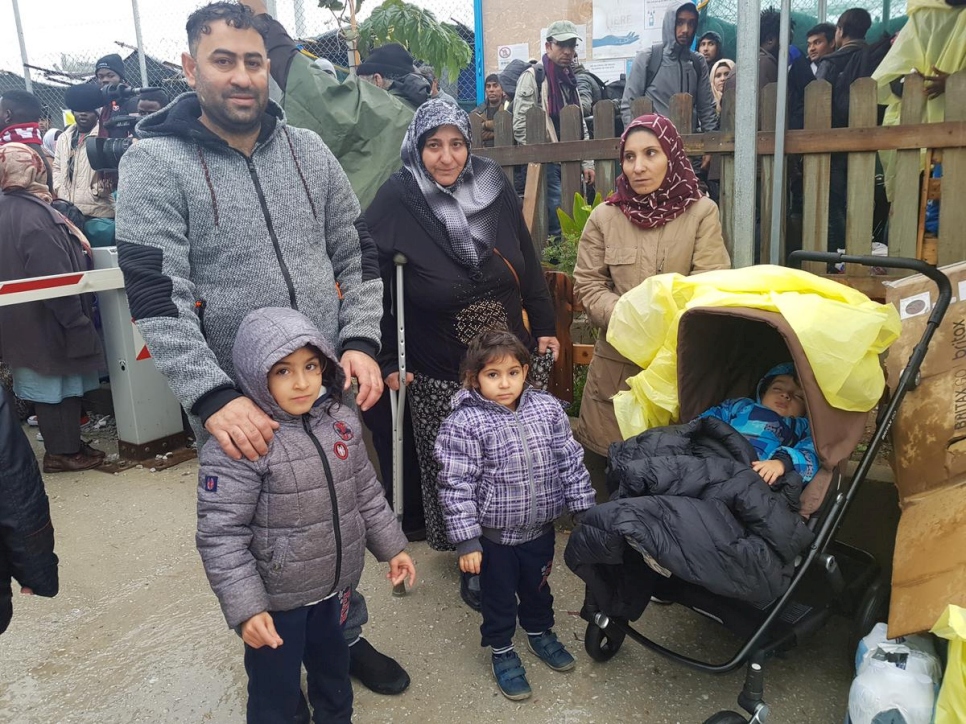Author: Anthi Pazianou | unhcr.org | 27 December 2018
LESVOS, Greece – Under a light drizzle, families from various war-torn countries stack duffel bags and battered cases holding all their possessions at the entrance to the Moria Reception and Identification Centre (RIC) on the Greek island of Lesvos.
More than 200 asylum-seekers are waiting to be transferred by boat to accommodation on the mainland. They barely notice the rain because they are so happy to be finally leaving the overcrowded reception centre, where they have lived since crossing the Aegean Sea from Turkey months before.
Their destination is a former resort beside northern Greece’s Lake Volvi. The site, last inhabited by Yazidis from Iraq, has been reopened by the government to ease the pressure on the islands and provide people with suitable accommodation and conditions while their asylum applications are processed.
“I hope and pray that the situation at Volvi will be better,” says Mohammed Al Ahmad, 33, from Syria’s volatile Idlib province, as he helps his four young children, pregnant wife and elderly mother onto a bus hired by UNHCR, the UN Refugee Agency, to take them to the ferry in Mytilene, the main port city of Lesvos. They spent three months in Moria. Read more>>>

